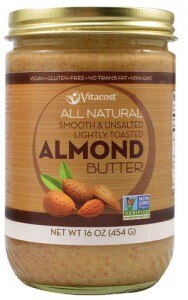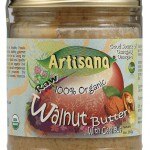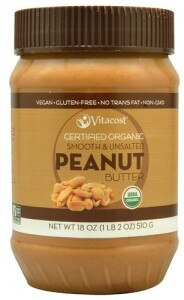Q: I love peanut butter, but what is there to know about it?
A: Well, you might not know that peanuts are a legume, even though they’re often categorized with almonds, walnuts, pecans and other fatty nuts. Of course, it’s all the good fats, like what you’d find in seeds. So while many of us grew up on peanut butter and jelly sandwiches, there are a variety of nut and seed butters available today which are actually more nutritious than peanut butter. With a growing number of school lunchrooms not allowing peanut products, using one of these other nut- or seed-based spreads is a healthy replacement.
Q: What other type of nut butters are available?
A: A variety of nut butters are available and each has its own health benefits. Take a look below at some of the best nut and seed butter options:
Almond butter: This may be the healthiest option of all the nut butters. Almond butter has the same creamy texture as peanut butter with less calories and fat per serving. It’s also an excellent source of vitamin E, calcium, magnesium, iron and zinc.
Sunflower seeds: They’re clearly not nuts, but sunflower seed butter is comparable in nutrition, taste and texture. Once blended, sunflower seeds have a smooth consistency and distinctively nutty taste. This option has relatively low calories from fat compared to peanut butter and is also an excellent source of vitamin E, magnesium, selenium and B vitamins.
Cashew nut butter: It’s a tiny bit higher in calories in fat than most other nut and seed butters, so some consider it a dessert spread. It does, however, have excellent nutritional value. Cashew butter tastes rich and is high in amino acids, copper, magnesium and manganese.
Walnut butter : While it may have a bit more fat and less protein than its counterparts, walnut butter contains a high amount of alpha-linolenic acid (ALA), which is a type of omega-3 fatty acid. Vegan dieters (or anyone who avoids fish) can greatly benefit from walnut butter’s excellent source of omega-3 fatty acids. Walnuts also contain melatonin, which can aid in regulating our sleep cycle. Did we mention it tastes awesome?
: While it may have a bit more fat and less protein than its counterparts, walnut butter contains a high amount of alpha-linolenic acid (ALA), which is a type of omega-3 fatty acid. Vegan dieters (or anyone who avoids fish) can greatly benefit from walnut butter’s excellent source of omega-3 fatty acids. Walnuts also contain melatonin, which can aid in regulating our sleep cycle. Did we mention it tastes awesome?
Peanut butter: Most of us have been eating peanut butter throughout our lives, so it can be difficult to break the habit. The good news is that you don’t have to! Peanut butter may not be quite as healthy as its nut and seed butter rivals, but in moderation it makes for a healthy snack. The high protein and fiber content of peanut butter helps promote a feeling of fullness for a longer period of time. Just make sure to measure out a reasonable amount and avoid idle snacking.
Q: What If I want to make my own nut butters?
A: That’s an excellent idea! All it takes to make your own nut butters are nuts and a food processor (or really strong blender). When you’re purchasing nut or seed butters, keep in mind the only ingredients necessary for any nut/seed butter, is the nut/seed itself. There is absolutely no need (or place) for artificial ingredients in your nut and seed butters! You can also mix and match nuts and add different ingredients to your homemade nut butters. Be creative and go nuts!
